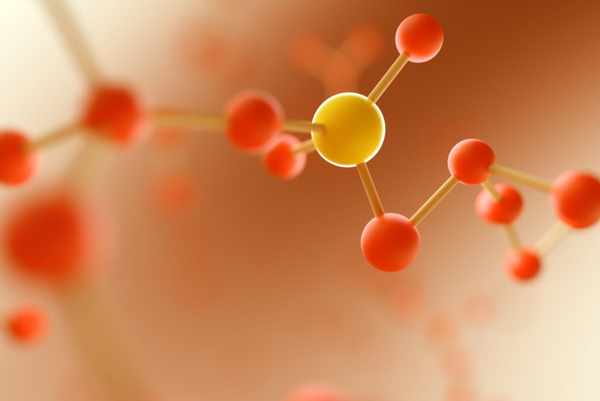We’re well into the third month of 2023, but are you still pursuing your fitness resolutions? Or do you feel sluggish, sleepy, tired, unmotivated, and fatigued, even to make it to a 15-minute brisk walk post-work? Let us introduce you to a compound that will fuel you with just the boost you need — L-Carnitine.
You may have heard about it or read the term in ads for workout supplements, etc., but we’ll finally break it down for you. Keep reading to learn how this ingredient can help you reach your weight goals while also improving your overall health.
L-Carnitine & Its Role in Weight Management
L-carnitine is an amino acid that occurs naturally in our bodies and plays a crucial role in metabolizing energy. It is synthesized in our liver and kidneys and is derived from two other essential amino acids, namely lysine, and methionine. The reason it’s abundantly mentioned in the health and fitness world is that it is known to aid in the transportation of fatty acids into the powerhouse of our cells—yes, the mitochondria—where they are oxidized to produce energy. These cells are mainly the ones in our muscles that dominate movement and play a part in weight management.
L-carnitine stimulates your body's metabolism to burn more triglycerides (chains of fatty acids). When you take L-carnitine supplements, your body prefers fatty acids (triglycerides) as an energy source over carbohydrates. By burning triglycerides, your body saves glycogen stored in the liver, which can then be used for other bodily needs. When less glycogen is burned, more fat is mobilized, resulting in increased fat loss. Because of the metabolic process of using fat as a fuel source, L-carnitine allows the body to burn more fat, save more glycogen, and ultimately improve stamina.
What are the Health Benefits of L-Carnitine in the Long Run?
L-carnitine is already present in our bodies, but it can also be obtained through an animal-based diet and supplements. Some people who may have a deficiency due to their diet, certain medical conditions, or high levels of physical activity may have an l-carnitine deficiency. L-carnitine supplementation may be suggested in some instances to address these deficits. A few symptoms of L-carnitine deficiency include muscular weakening, tiredness, and metabolic irregularities. Aside from weight management, this compound can do way more for the body. Here are some long-term L-carnitine benefits when they are in balance.
1. Improves Brain Function
L-carnitine is known to have neuroprotective properties that may help improve cognitive function. One study found that it alters the metabolism of brain energy and increases noradrenaline and serotonin content. Some studies also showed L-carnitine to have an effect on reducing decay in brain cell structure, and oxidative damage in the brain. It also enhances dopamine production, which in turn increases focus and motivation. L-carnitine may also help protect against age-related decline in brain function and reduce the risk of developing neurological disorders such as Alzheimer's disease.
2. Better Heart Health
L-carnitine may benefit heart health by diminishing inflammation, increasing endothelial function, and lowering the chance of developing heart disease. L-carnitine supplementation was found to be linked with a substantial decrease in all-cause mortality and cardiovascular events in individuals with established heart disease. It may also help lower blood amounts of toxic lipids such as triglycerides and LDL cholesterol.
3. Improves Exercise Routine
When L-carnitine supplementation occurs, the body tends to use fat stores for oxidation during exercise and spares the amino acid and muscle mass. This in turn helps you function better during exercise and also promotes new protein synthesis in muscle mass after a workout. It also has the potential to reduce muscle damage and promote recovery time. This can be particularly beneficial for endurance athletes, such as runners or cyclists.
4. Balances Blood Sugar Levels
Intake of L-carnitine can improve the uptake of glucose and insulin in cells, by improving insulin sensitivity. Many studies have also demonstrated that L-carnitine supplementation has a beneficial effect on glucose utilization in our bodies. This can be beneficial for people with diabetes. Even though research about this is still in its early stages, the effects of L-carnitine in many studies have shown results like reduced tiredness, insomnia, and improved mental activity in diabetic patients.
Apart from these, L-carnitine is also involved in other important functions of the body, such as regulating muscle movement and ensuring the health of cellular membranes. It also has antioxidant properties and plays a role in our immune function.
Sources of L-Carnitine
While it is mainly found in animal-based sources such as red meat, pork, lamb, and certain fish, L-carnitine can also be obtained through supplements that are specifically made for vegetarians or vegans. These weight management supplements often have additional ingredients like caffeine, garcinia cambogia, and chromium to effectively boost metabolism, and energy and even enhance focus. Some plant-based sources of L-carnitine include avocados, artichokes, tempeh, and whole wheat bread. However, these plant-based sources provide only trace amounts of L-carnitine.
Wrapping Up
L-carnitine has received a lot of attention in the health and fitness business, with promises that it can help with weight loss, athletic efficiency, and general holistic well-being. Since the compound is not an artificial one, it can be considered the best fat burner when paired with the right diet and exercise routine. That being said, various lifestyle and health factors also come into play, which is why it’s important to consult a healthcare practitioner before you begin taking the supplement.
—
References:
https://nutritionandmetabolism.biomedcentral.com/articles/10.1186/1743-7075-3-35
https://pubmed.ncbi.nlm.nih.gov/22549035/
https://www.ncbi.nlm.nih.gov/pmc/articles/PMC122369/
https://www.ncbi.nlm.nih.gov/pmc/articles/PMC7284336/
https://pubmed.ncbi.nlm.nih.gov/29241711/
https://www.ncbi.nlm.nih.gov/pmc/articles/PMC5872767/
https://pubmed.ncbi.nlm.nih.gov/10067662/





























